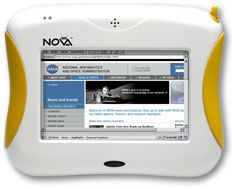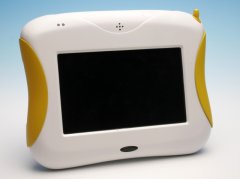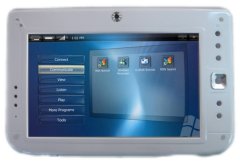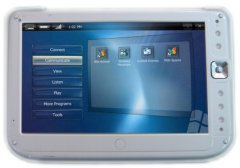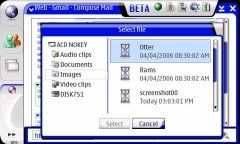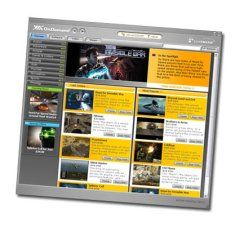 On the 8th June, VIA held a press conference to announce something called ‘VIA OnDemand’, a joint developement with HTC and Acegain.
On the 8th June, VIA held a press conference to announce something called ‘VIA OnDemand’, a joint developement with HTC and Acegain.
The ‘something’ is a secure P2P-based system based on Acegain’s DRAMA grid architecture. According to this PDF from VIA (2005), ‘OnDemand’ will be a complete media distribution system including encryption, trust and DRM capabilities. This next-generation media distribution system would be able to offer music, games, games network, videos, voice over IP, video conferencing and live-update features.
The Drama platform has been developed for multiple operating systems including Linux, Windows XP and Windows CE and appears to utilise the ‘padlock’ hardware encryption features found in VIA chipsets. The DRM component is not detailed but ‘flexible licensing’ is mentioned.
Timothy Chen will run the new business having moved from Dopod after its purchase by HTC. Chen is the nephew of Cher Wang who started VIA Technoliges in 1992 and HTC in 1997.
The question is, why are HTC in the mix? HTC and VIA are closely related family companies but at this time, I don’t see HTC using the VIA chips that seem to be part of this OnDemand architecture. One likely scenario is that HTC will start moving efforts into the ultra mobile PC business. It would certainly make sense for HTC and VIA. HTC’s PDA business is probably in decline. HTC have a powerful set of business relationships including very close ties with Microsoft. ultra mobile PC products make great phone companions and VIA have a good set of processing hardware to enable it all.
I can envisage that the OnDemand platform would be made available to mobile network operators and the software is built into new UMPC’s. ultra mobile PC users would then use their 3G or Wifi data plans to connect their HTC UMPC’s (with VIA chips of course) to the internet where the full range of media services would be available.
The really great thing about this scenario is that UMPC’s can be sold subsidised by mobile phone operators with data and content contracts and that’s exactly the kick-start that UMPC’s need. The customer would be buying a cheap (HTC/Windows 5) smartphone with data plan and then, a few months later perhaps, the customer goes back to the mobile operator and buys a cheap (HTC/Windows XP) ultra mobile PC with a content plan.
Although many mobile operators already have content deals and media distribution systems, if it means being able to sell a new line of products that can generate demand for data contracts, the advantages of moving the content onto this new platform (assuming the content contracts permit it) could be worthwhile.
So, following the press conference of OnDemand, I haven’t seen any news reports. We’ll keep our eyes open and try and tie-up the loose ends as soon as we can. If anyone was at the VIA OnDemand conference on the 8th, please let us know how it went and if anyone knows anything about HTC producing UMPCs, please spill the beans!
Story leads from the freitasm blog.
Regards
Steve / Chippy


